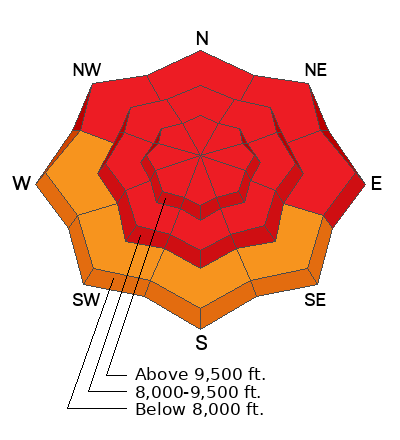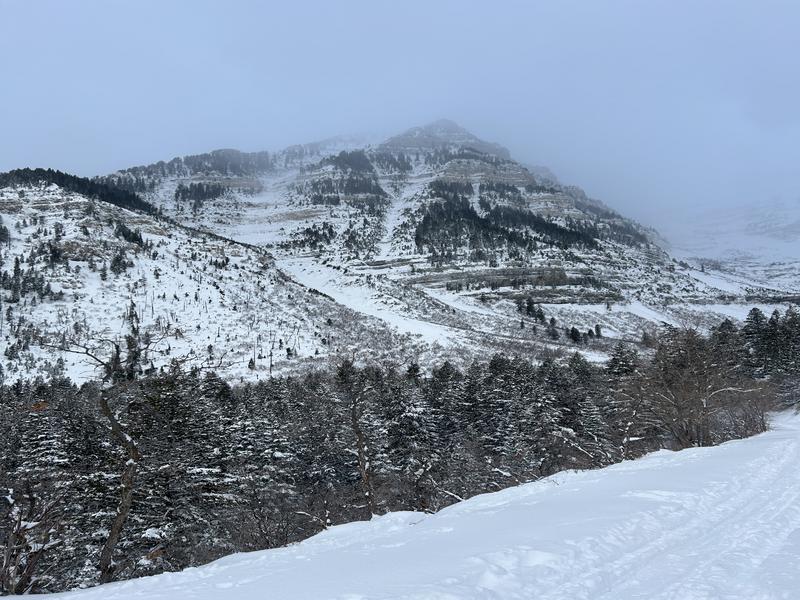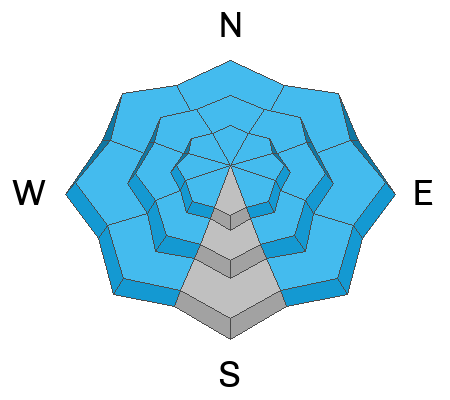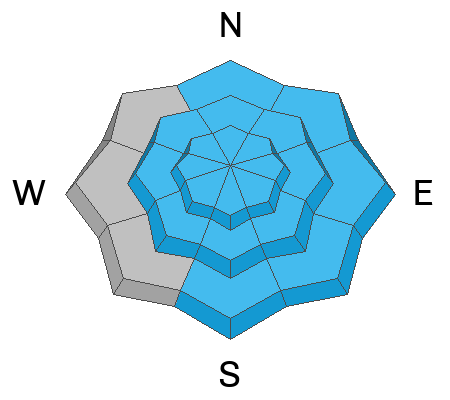Avalanche Warning
The avalanche danger for the warning area is HIGH for the mountains of northern and central Utah and southeast Idaho, which includes the Wasatch Range...the Bear River Range...Uinta Mountains...Manti-Skyline plateau...and the mountains of southwestern Utah.
Strong winds and heavy snowfall have created dangerous avalanche conditions. Avalanches failing on a widespread persistent weak layer buried under the new snow are very likely. Avoid all avalanche terrain.
This avalanche warning is in effect from through Tuesday at 6:00am.
And it just keeps snowing. Most areas picked up an additional 4-6" (upwards of 0.40" snow water equivalent) overnight and we might squeeze another 1-3" before drying up this afternoon. Mountain temperatures are in the twenties. But those winds. They picked up again overnight from the west, blowing 30-40mph with gusts to 60. The highest elevations are gusting over 100mph.
Storm totals so far: (snow/snow-water-equivalent)
- LCC: 85"/6.75" SWE
- BCC: 66"/5.45" SWE
- PC: 50"/4.4" SWE
- Ogden: 55"/5.0" SWE
- Provo: 60"/5.69" SWE
For today, we'll have continued snowfall through early afternoon. Temperatures will be in the low teens. Winds will blow from the northwest 30-40mph. We will get a bit of a break tomorrow ahead of another storm for Wednesday. Another potentially significant storm is on tap for the weekend.
Large and destructive natural avalanches roared down Saturday night into early Sunday with periods of natural avalanches running yesterday mid-morning. Many of these avalanches were 2-4'+ deep and hundreds of feet wide and noted on a variety of aspects and elevations. Winds and avalanche conditions were so extreme that some roads and operations struggled to open if they opened at all.
Many old-timers are scratching their heads, wondering if they have ever seen an avalanche "here" or "there". The takehome is that avalanches are occurring in unusual terrain.
Avalanches were running within the new snow, avalanches were failing on the December layer of facets. The first will slowly heal; the second will remain as dangerous as ever.
Collapsing was noted yesterday in the upside down (higher density over lower density) new snow as well as into the old facets from December.
Since Friday, we have heard about two full avalanche burials (Main Porter, American Fork) with rumors of a third; all recovered by partners or bystanders. We've also heard of many more skiers and riders being caught and carried; again with a good outcome. Tragically, a skier was killed in an avalanche in Wyoming yesterday (
Details).
large natural out the NE Chute of Elk Point above Aspen Grove
Be sure to check all the avalanche activity
HERE. 










